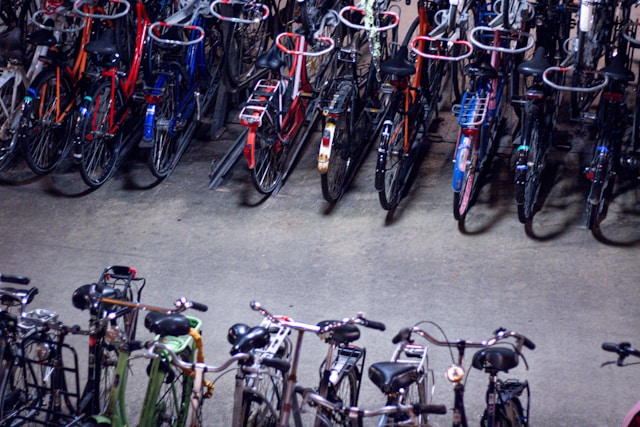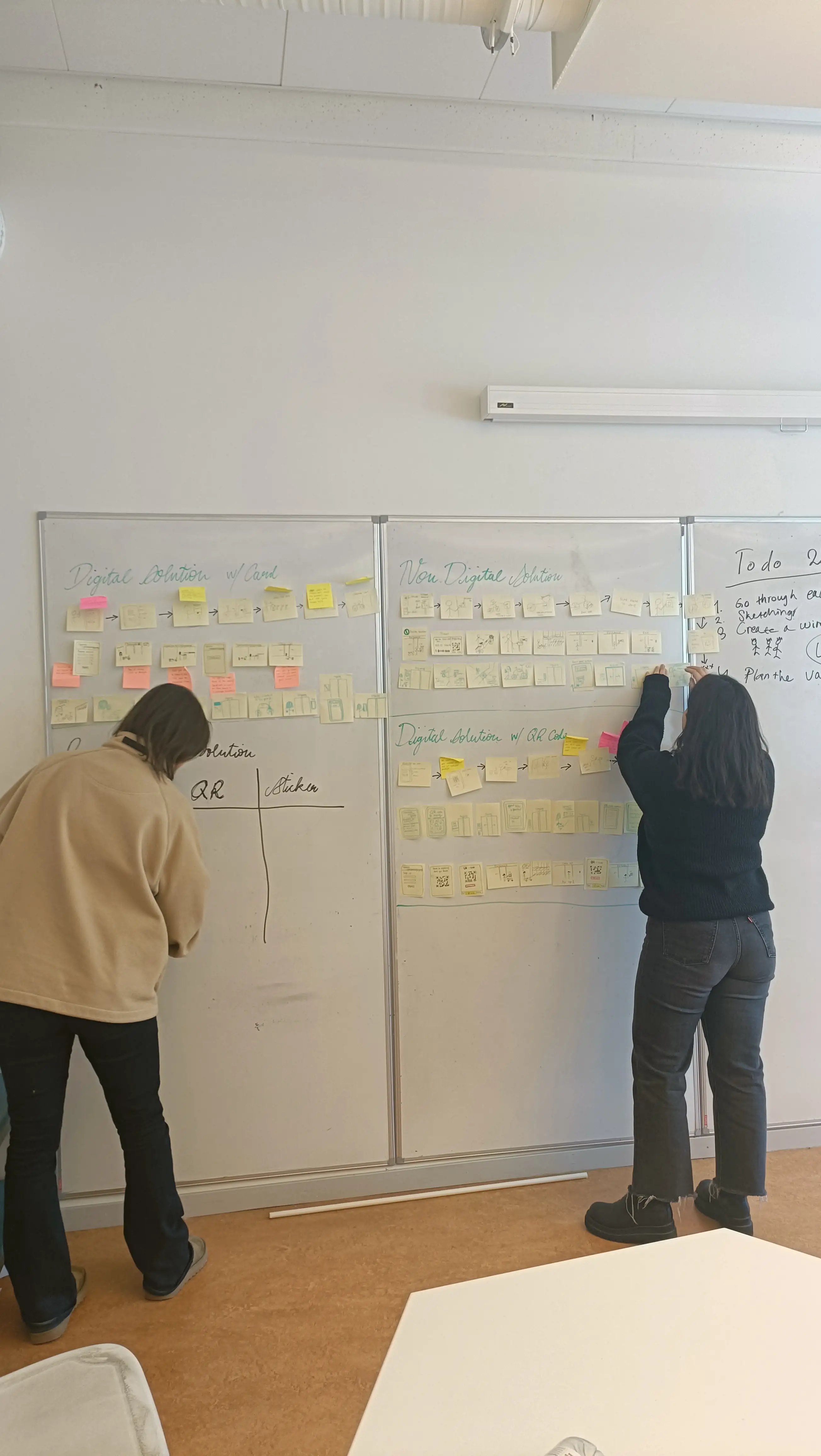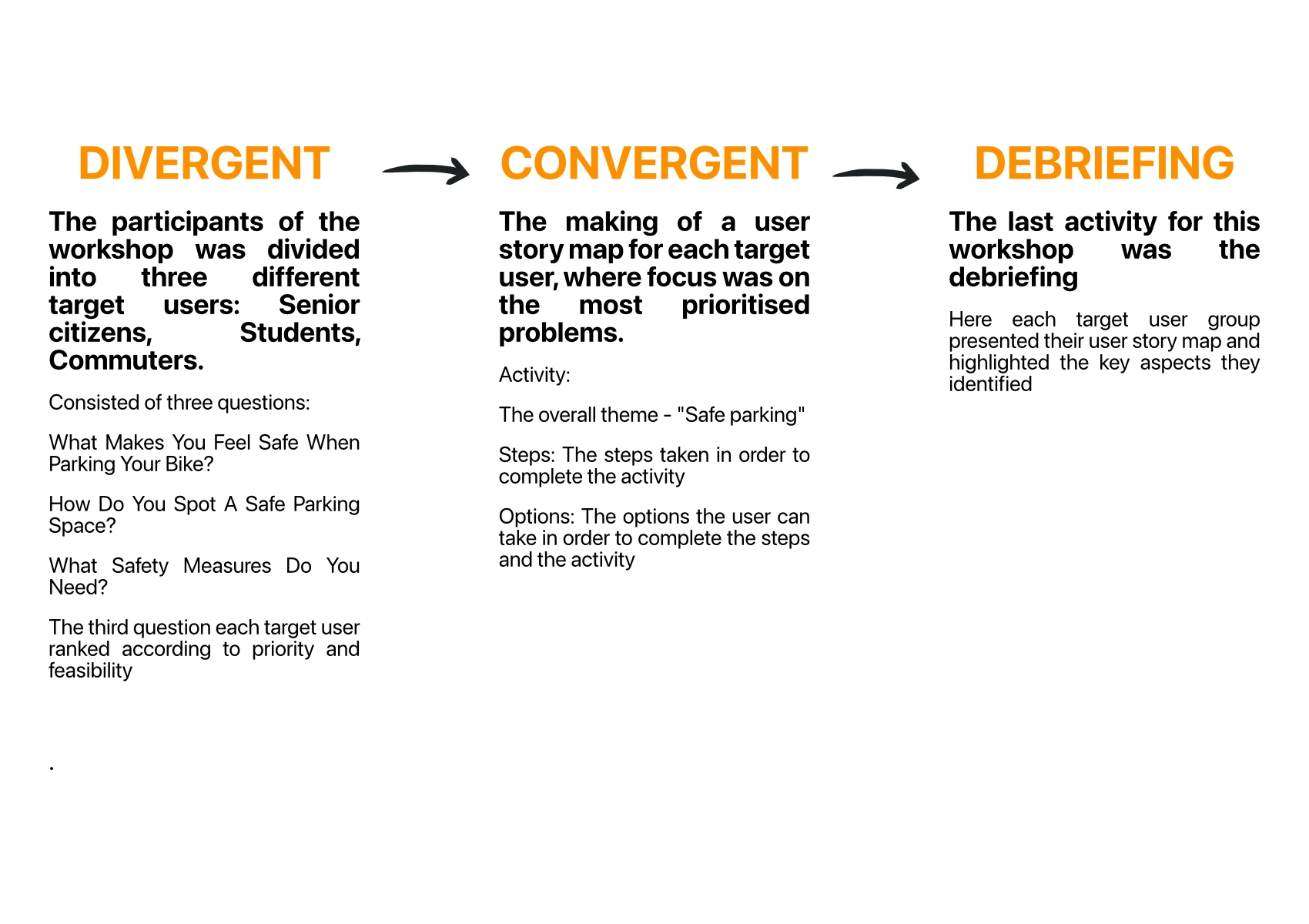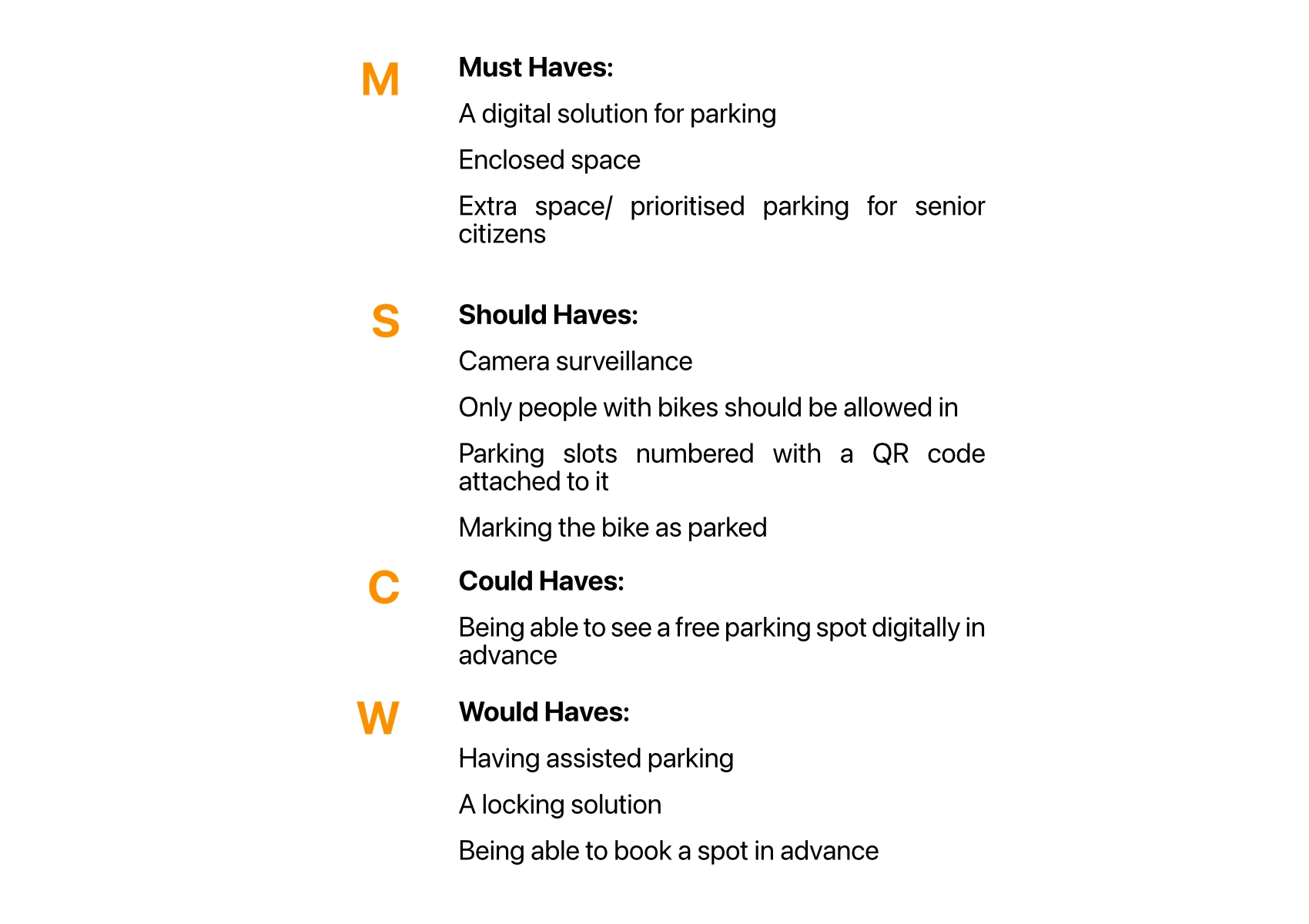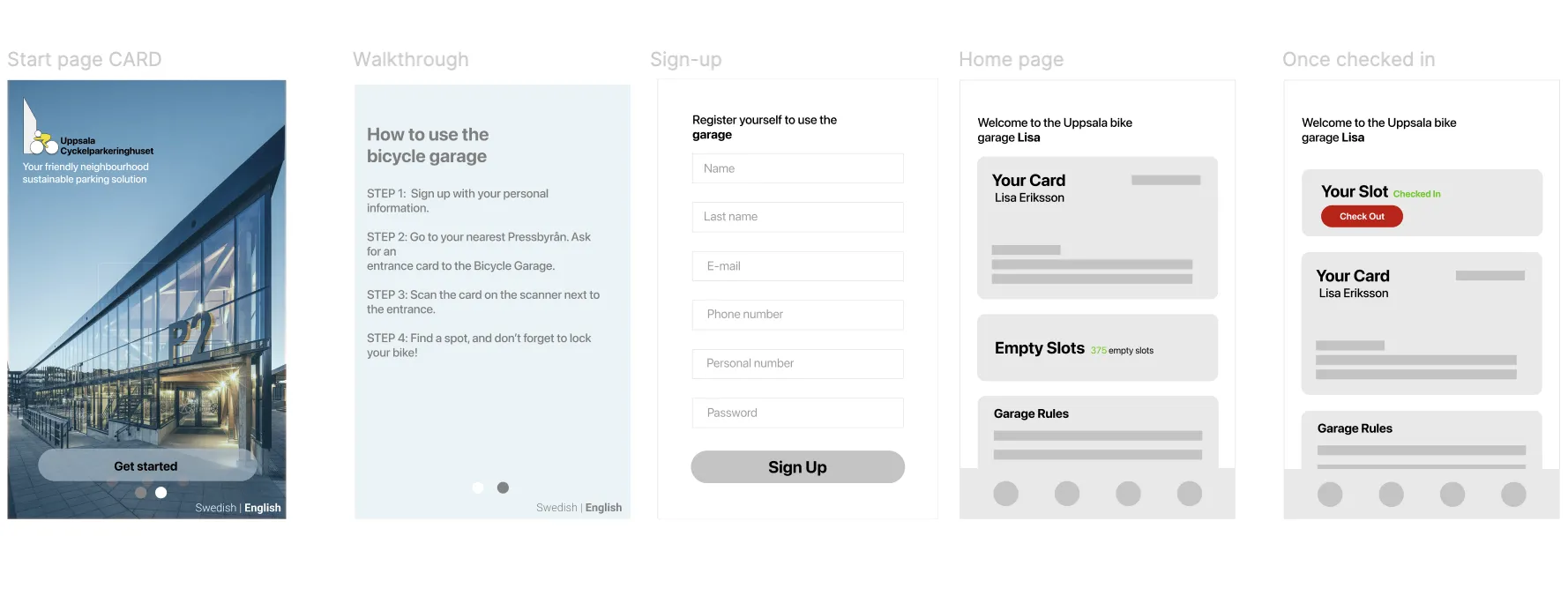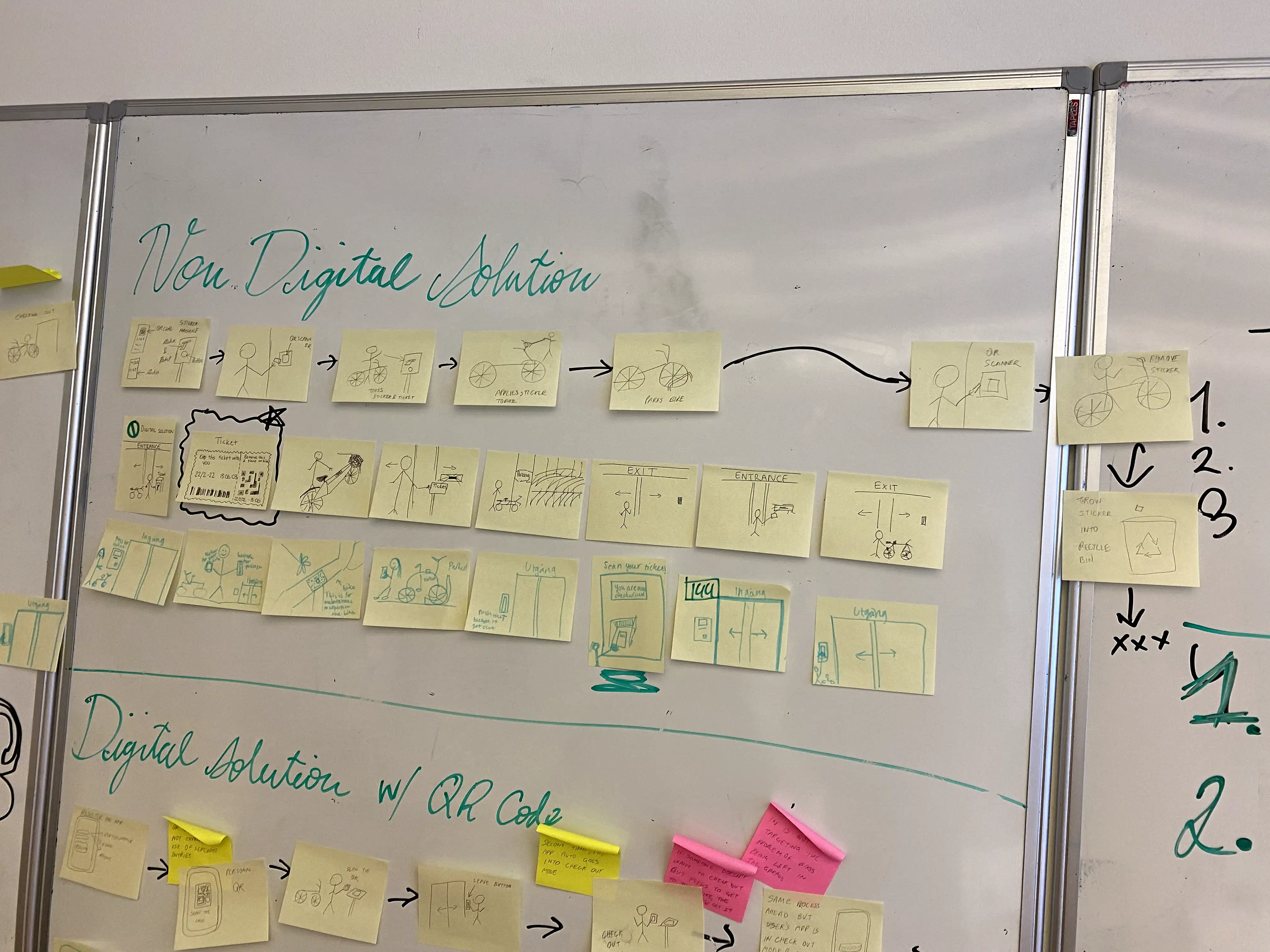Background
The Uppsala Cykel Hus project aimed to improve the bicycle parking experience at the Uppsala Central Station bicycle garage, to promote sustainable and well-designed urban spaces for commuting. While the garage was built with good intentions, our team discovered key usability and service flaws. Through iterative, co-creative design, we worked to enhance both digital and physical touch-points, especially the confusing check-in/check-out system that often left users frustrated or fined.Our team of four university students used research-through-design and participatory methods to identify problems, validate insights, and prototype solutions. We engaged real users, including students, senior citizens, and commuters, in workshops and testing rounds to ensure the solution felt grounded in real needs
My Role
While the project was highly collaborative, I focused on:- Designing high-fidelity prototypes in Figma.
- Conducting user research and validation interviews.
- Documenting findings and managing iterations using Kanban boards in Miro.
- Co-facilitating design workshops and synthesis sessions.
Tools
Methodology & Methods
We adopted a Research Through Design approach, using participatory and iterative tools:- Workshops: Conducted multi-phase co-creation sessions with diverse sets of users.
- Observations: Spent time at the garage to understand real-world constraints.
- MoSCoW Prioritisation: Used to synthesise and prioritise user pain-points.
- Wire-framing & Prototyping: Low- to high-fidelity iterations, tested and refined with users.
- Task Flows & Personas: Created user journeys and contextual tasks.
- Validation: Interviews and scenario walkthroughs with users of varying digital fluency.
Design, Prototyping, Iterations & Testing
We tested three potential directions: two app-based, one analogue. After rounds of user testing, we settled on a QR-code powered app, enabling:- Real-time garage availability.
- Slot pre-booking and time-based reservations.
- Secure check-in using personalised QR codes.
- Clear, confirmable check-out process to prevent overstay fines.
Major challenges included improving the onboarding experience and ensuring seamless handoffs between the app and the physical space.
Deliverables
- Workshop & Research Reports
- MoSCoW Analysis
- Task Flows & User Journeys
- Clickable Figma Prototype with Booking, Check-in, and Check-out Flows
Key Takeaways
- Co-creation works: Involving users early helped ground the design in real-world behaviour.
- Design is service: We weren’t just building an app, but reshaping a service ecosystem.
- Iterate, then iterate again: Every prototype test gave us new ideas to refine.
- Team trust matters: Role clarity and communication were critical, especially under deadlines.
